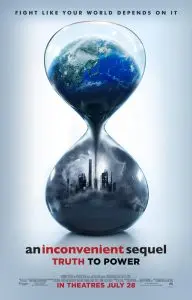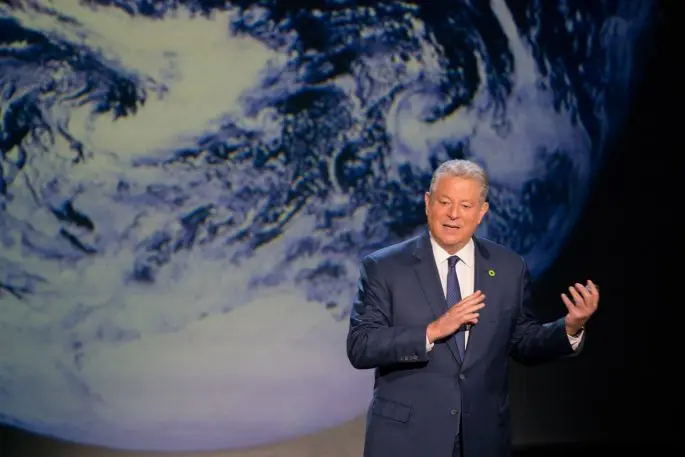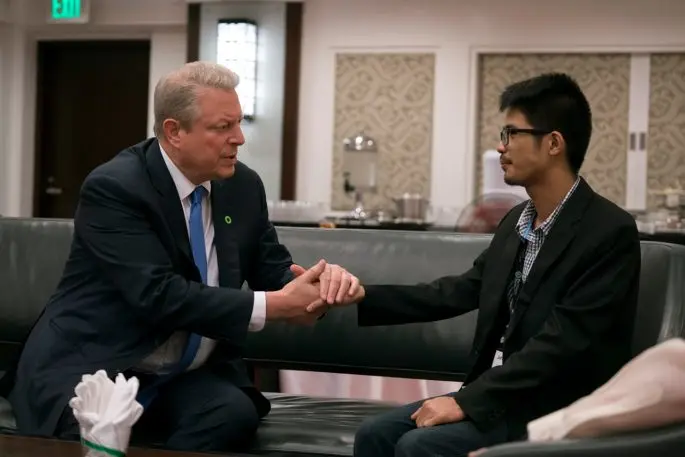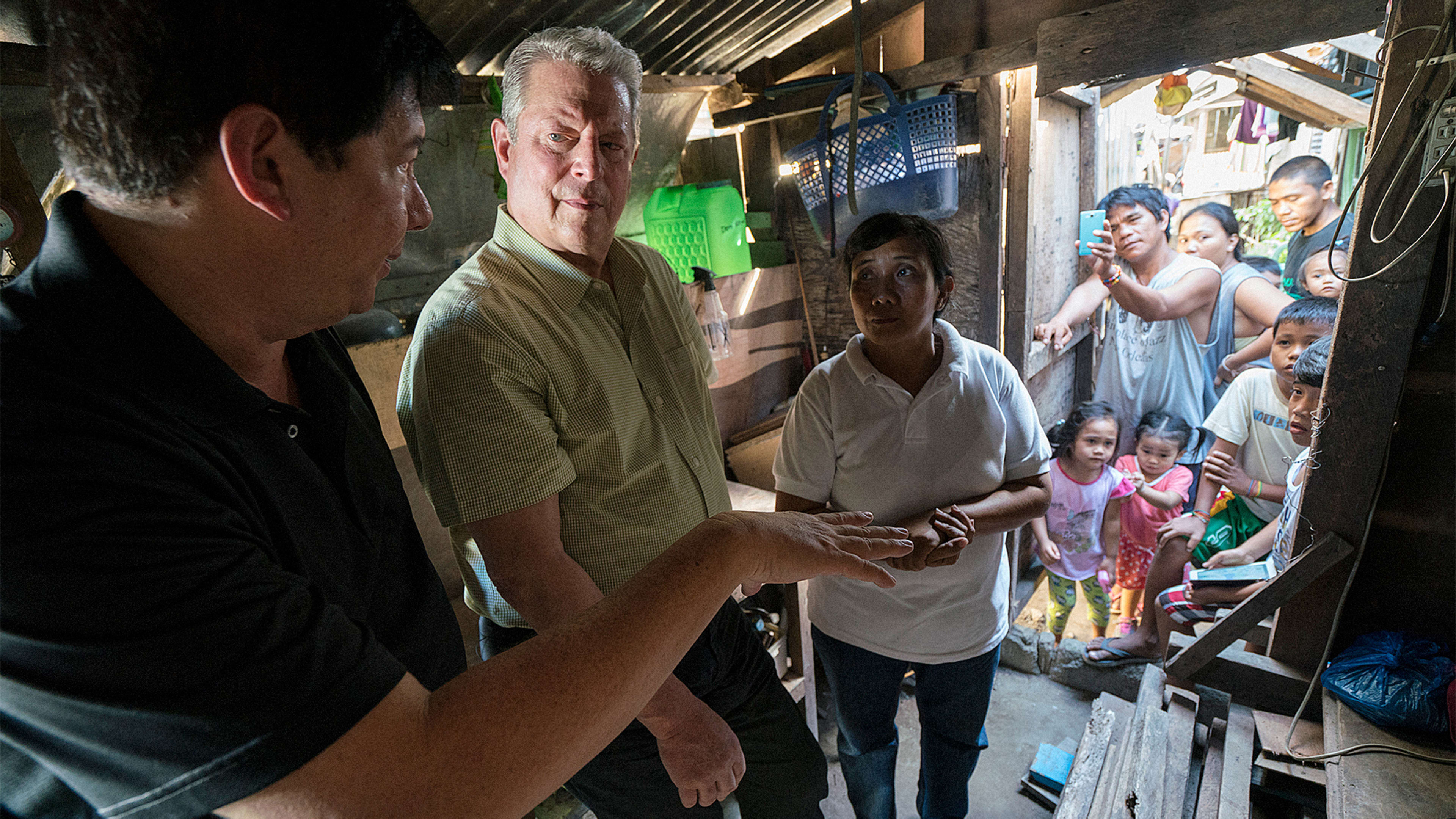When former Vice President Al Gore and the production teams at Participant Media and Paramount Pictures wrapped up the filming of An Inconvenient Sequel: Truth to Power–the follow-up to Gore’s first film from 2006, An Inconvenient Truth–Donald Trump was not yet president. The Environmental Protection Agency was not yet helmed by a fossil fuel apologist. And nor had the United States withdrawn from the Paris Agreement and its commitment to presenting a united global front against climate change. In fact, the film draws to a close with Gore leaving the negotiations in Paris in November 2015, cautiously optimistic that the world and his country was on the right path.

Without knowing the full extent of the circumstances into which the film would be released, Participant Media, one of the producers on An Inconvenient Sequel, was nevertheless prepared to position it as a vehicle to advance a wide variety a of climate causes, and to motivate audiences to not only to consume the film, but to act on its message. To that end, beginning July 24, Participant Media launched a “10 Days of Action” campaign give audiences three actionable steps to guide their response to the film; though the campaign is targeted to the leadup the film’s wide release, the actions can be undertaken at any time.
Each day, the film’s website offers visitors a different action to take, roughly categorized under the umbrellas of “use your choice,” “use your voice,” and “use your vote”; all of the actions are developed in partnership with different nonprofits, including The Sierra Club, the Natural Resources Defense Council, and Indivisible. Day One, for instance, includes a downloadable action kit, developed in collaboration with the Climate Reality Project, that includes an abridged version of Gore’s signature climate slideshow; Participant is encouraging audiences to use the kit to educate themselves on the key facts from the film and spread the information in their communities. The next day, the site guides people to a form through which they can petition their governor to commit to the Paris Agreement and fighting climate change, regardless of Trump’s actions in Washington. (There is a hashtag, of course, linking all of these activities, and it’s #BeInconvenient.)

Participant heard that feedback from the organizations it reached out to last fall, during what the company calls a “listening tour.” Participant was founded in 2004 by Jeff Skoll, the first president of eBay, as both a film production and a social impact company; each of their films has a strong advocacy stance, and Participant coordinates their release with the involvement of nonprofits in the issue space. By the time the meetings with over 30 environmental organizations were wrapped, Skoll says, Trump was elected, and Participant knew that An Inconvenient Sequel had secured a premiere at Sundance Film Festival in February. But with Paramount, they decided to hold off on releasing the film until the summer, “both so that we would have a long enough runway to prepare for the release of the movie, and also, quite honestly, to give people more time to experience the effects of climate change,” Linde says.

Phase two of the impact campaign–the public mobilization encapsulated in the 10 Days of Action strategy–is now underway, and for phase three, which Linde says is still in development, Participant partnered with the National Wildlife Federation (NWF) to create an environmental curriculum to be used in schools. Schools will also be able to compete for grants through the NWF to bring renewable energy projects, like solar panels for stadium lights to their campuses.
“It’s important to remember that the movie is a movie,” Linde says. “It’s an opportunity for people to experience something together, as a community.” The campaign around it, he adds, exists as a way to extend the films sense of community into efforts that feed through the over 30 organizations Participant has partnered with. The film, Linde says, “is accelerating the need for action at a moment in time when people are more open then ever to doing something for their community and for the world.”
Recognize your brand’s excellence by applying to this year’s Brands That Matter Awards before the early-rate deadline, May 3.
